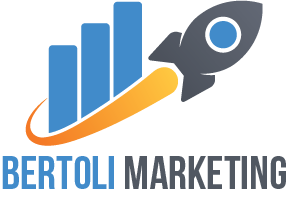We Accelerate Revenue for Information Technology Industry Startups and Growth Companies
Get a Complimentary
Digital Marketing Audit
Get Your Digital Marketing Presence Audited
SEO Audit
on-page SEO, competition analysis, backlinks, and domain authority
Website Performance
conversion rates, traffic levels, and landing pages
Recommendations
optimize your digital presence to generate more leads
IT Marketing
In today’s digital age, the Information Technology (IT) sector is evolving rapidly, and so are the marketing strategies that drive its growth. IT marketing is a specialized approach that focuses on promoting technology products, services, and solutions to businesses and consumers. It involves understanding the unique needs of the tech industry and developing targeted strategies to effectively reach and engage with the right audience. As technology continues to advance, IT marketing becomes increasingly crucial for staying competitive and driving business success.


What is IT Marketing?
IT marketing encompasses a range of activities and strategies designed to promote IT products and services. This includes hardware, software, cloud services, IT consulting, and more. Unlike traditional marketing, IT marketing often involves a more technical and data-driven approach due to the complex nature of technology products and services.
Key Aspects of IT Marketing
Target Audience Identification
Understanding the specific needs and pain points of different segments within the IT industry, such as enterprise businesses, small and medium-sized enterprises (SMEs), or individual consumers.
Technical Content Creation
Developing content that explains the technical aspects and benefits of IT products and services in a clear and engaging manner.
Lead Generation and Nurturing
Implementing strategies to attract potential customers, qualify leads, and guide them through the sales funnel.
Brand Positioning
Establishing a strong brand presence and differentiating your IT solutions from competitors.
Digital Marketing
5.Utilizing various digital channels, such as search engines, social media, email, and content marketing, to reach and engage with the target audience.
Key Components of an Effective IT Marketing Strategy
A successful IT website incorporates several key elements that contribute to a high conversion rate:
1. Market Research and Analysis
Before developing an IT marketing strategy, it is essential to conduct thorough market research and analysis. This involves understanding market trends, identifying key competitors, and analyzing customer needs and preferences. By gaining insights into the market landscape, you can tailor your marketing efforts to address specific opportunities and challenges.


2. Defining Target Audience
Identifying and defining your target audience is a critical step in IT marketing. This involves segmenting the market based on factors such as industry, company size, job roles, and pain points. By understanding your target audience’s characteristics and needs, you can create more targeted and effective marketing campaigns.
3. Developing a Unique Value Proposition
A unique value proposition (UVP) clearly communicates the benefits and differentiators of your IT products or services. It should address the specific needs and pain points of your target audience and highlight what sets your offerings apart from competitors. Your UVP should be incorporated into all marketing materials and messaging.


4. Creating Compelling Content
Content is a key component of IT marketing. Developing high-quality, relevant content that addresses the needs and interests of your target audience is essential for attracting and engaging potential customers. This includes creating blog posts, whitepapers, case studies, and other types of content that provide value and demonstrate your expertise.
5. Implementing Digital Marketing Tactics
Digital marketing plays a crucial role in IT marketing strategies. Utilizing various digital channels, such as search engines, social media, email, and paid advertising, helps reach and engage with your target audience effectively. Key digital marketing tactics include:
- Search Engine Optimization (SEO):Optimizing your website and content to improve visibility in search engine results and attract organic traffic.
- Pay-Per-Click (PPC) Advertising:Running targeted ads on search engines and social media platforms to drive traffic and generate leads.
- Social Media Marketing:Leveraging social media platforms to connect with your audience, share valuable content, and build brand awareness.
- Email Marketing:Sending targeted email campaigns to nurture leads, provide updates, and promote offers.
- Content Marketing:Creating and distributing valuable content to attract and engage potential customers.

6. Utilizing Lead Generation and Nurturing Strategies
Lead generation and nurturing are critical aspects of IT marketing. Implementing strategies to attract, qualify, and nurture leads helps move prospects through the sales funnel and increase conversion rates. Key lead generation and nurturing tactics include:
- Lead Magnets:Offering valuable resources, such as eBooks, webinars, or free trials, to capture contact information and attract leads.
- Landing Pages:Creating optimized landing pages with compelling offers and clear calls-to-action to drive conversions.
- Marketing Automation:Using automation tools to streamline lead nurturing processes, send personalized messages, and track engagement.
- Lead Scoring:Implementing lead scoring models to prioritize and focus on high-quality leads who are more likely to convert.
7. Measuring and Analyzing Performance
Regularly measuring and analyzing the performance of your IT marketing efforts is essential for understanding what works and what needs improvement. Key performance indicators (KPIs) to track include website traffic, lead generation, conversion rates, and ROI. Use analytics tools to gather data, analyze trends, and make data-driven decisions to optimize your marketing strategy.

The Importance of IT Marketing
Effective IT marketing is essential for several reasons:
Differentiation in a Competitive Market
The IT industry is highly competitive, with numerous companies offering similar products and services. A well-executed IT marketing strategy helps differentiate your offerings from competitors, highlighting your unique value propositions and strengths. This differentiation is crucial for capturing the attention of potential customers and gaining a competitive edge.
Educating the Market
Technology products and services can be complex and require a certain level of understanding. IT marketing plays a vital role in educating the market about the benefits and features of your offerings. By providing clear, informative content and demonstrating the value of your solutions, you can help potential customers make informed decisions.
Building Trust and Credibility
Generating Quality Leads
A targeted IT marketing strategy focuses on attracting and nurturing high-quality leads who are genuinely interested in your products or services. By implementing lead generation tactics such as content marketing, webinars, and targeted advertising, you can reach potential customers who are more likely to convert.
Driving Business Growth
Ultimately, the goal of IT marketing is to drive business growth by increasing brand awareness, generating leads, and converting prospects into customers. A well-planned and executed IT marketing strategy helps achieve these goals by leveraging the right tactics and channels to reach your target audience effectively.
Industry-Specific IT Marketing Strategies
Different segments of the IT industry require tailored marketing approaches. Here’s how IT marketing strategies can vary across various sectors:
Software and SaaS
For software and Software-as-a-Service (SaaS) companies, marketing strategies often focus on demonstrating the benefits and features of the software. This includes creating product demos, case studies, and customer testimonials. Highlighting key use cases and offering free trials or freemium models can also be effective for attracting potential customers.
IT Consulting and Services
IT consulting and services firms often emphasize their expertise and track record. Marketing strategies may include showcasing successful projects, client testimonials, and thought leadership content. Offering valuable insights through webinars, whitepapers, and industry reports can help build credibility and attract new clients.
Hardware and Technology Products
Marketing hardware and technology products involves highlighting product specifications, performance, and benefits. Strategies may include product reviews, comparison guides, and technical specifications sheets. Providing hands-on demonstrations and offering product trials can also be effective in engaging potential customers.
Cloud Services
Cloud service providers focus on showcasing the benefits of cloud solutions, such as scalability, cost savings, and security. Marketing strategies may include creating content that addresses common cloud computing challenges, offering free trials or consultations, and highlighting case studies of successful cloud implementations.
Best Practices for IT Marketing
Stay Updated with Industry Trends
The IT industry is constantly evolving, with new technologies and trends emerging regularly. Stay updated with the latest industry developments and incorporate relevant trends into your marketing strategy. This helps ensure that your marketing efforts remain current and resonate with your audience.
Focus on Education and Thought Leadership
Educating your audience and establishing your brand as a thought leader in the IT industry can build trust and credibility. Share valuable insights, industry trends, and best practices through blog posts, whitepapers, and speaking engagements.
Personalize Your Marketing Efforts
Invest in Data-Driven Marketing
Leverage data and analytics to drive your marketing decisions and optimize your strategies. Track key metrics, analyze performance data, and use insights to make informed decisions and improve the effectiveness of your marketing campaigns.
Foster Customer Relationships
Why Choose Bertoli Marketing for Your IT Marketing Needs?
Expertise in IT Marketing
At Bertoli Marketing, we have extensive experience in IT marketing, including software, hardware, consulting, and cloud services. Our team understands the unique challenges and opportunities in the IT sector and can develop targeted strategies to help you achieve your marketing goals.
Customized Marketing Solutions
We offer customized marketing solutions tailored to your specific needs and objectives. Whether you need to generate leads, build brand awareness, or drive sales, we work closely with you to create and execute a marketing strategy that aligns with your business goals.
Comprehensive Services
Our comprehensive IT marketing services cover all aspects of your marketing strategy, from market research and content creation to digital marketing and performance analysis. We provide end-to-end support to ensure the success of your marketing efforts.
Data-Driven Approach
We use data and analytics to drive our marketing strategies and measure performance. By analyzing key metrics and trends, we make data-driven decisions to optimize your marketing campaigns and achieve the best results.
Ongoing Support and Optimization
Our dedicated team provides ongoing support and optimization to ensure the continued success of your IT marketing efforts. We monitor performance, make adjustments as needed, and provide recommendations for continuous improvement.
Get Started with Bertoli Marketing Today
Ready to enhance your IT marketing strategy and drive business success? Contact Bertoli Marketing today to schedule a consultation. Our team of experts is here to help you develop and implement a comprehensive IT marketing strategy that meets your needs and achieves your goals.

